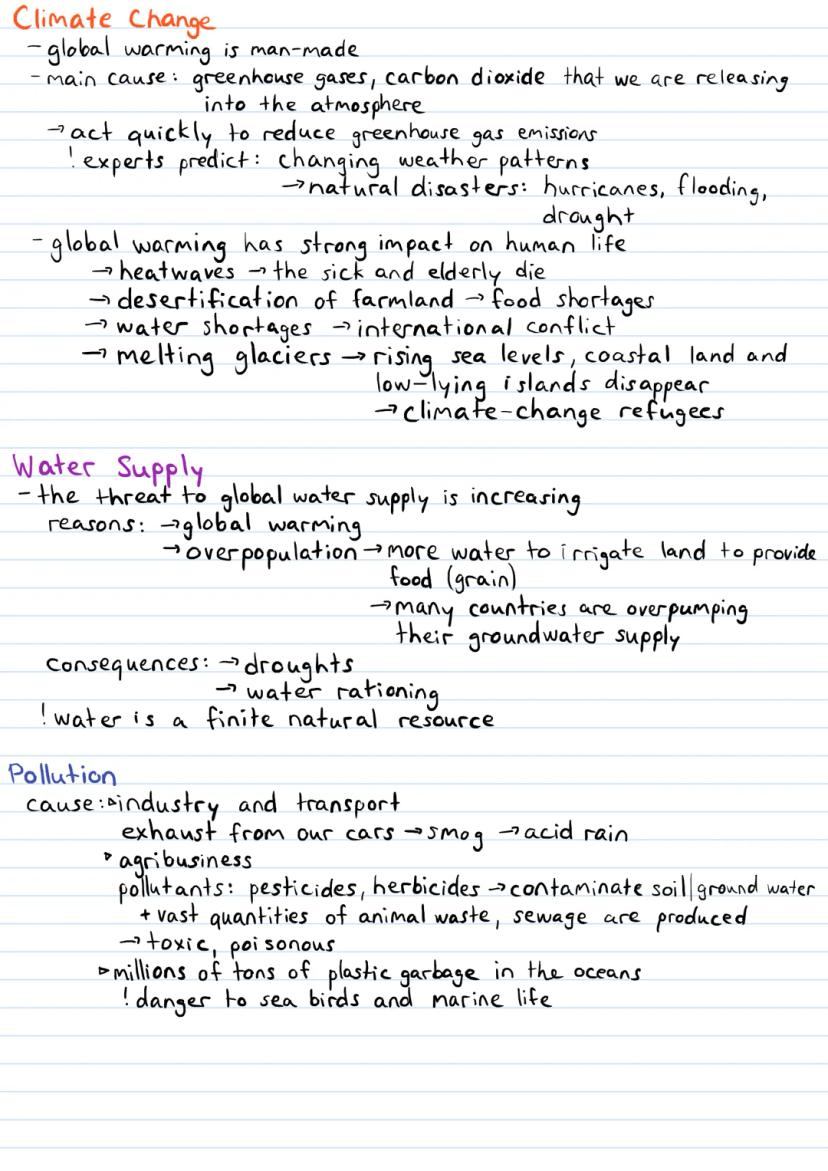climate change, water supply, pollution, waste disposal, energy sources, biofuels, plastics in the ocean, fracking, fossil fuels, sustainable behavior, plastics pro/cons, effects of climate change
Melde dich an, um den Inhalt zu sehenKostenlos!
Zugriff auf alle Dokumente
Verbessere deine Noten
Schließ dich Millionen Schülern an
Mit der Anmeldung akzeptierst du die Nutzungsbedingungen und Datenschutzerklärung









